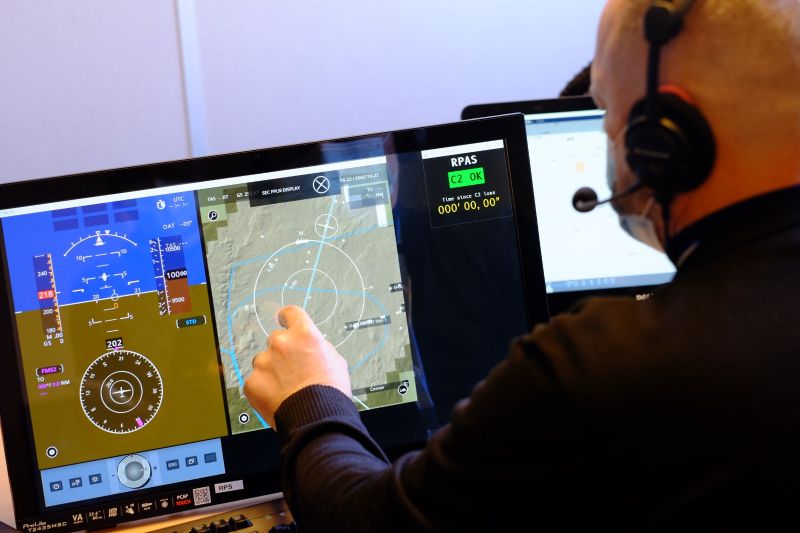Consortium partners in the SESAR research project ERICA (Enable RPAS Insertion In Controlled Airspace) report successful completion of the validation exercise to accommodate remotely piloted aerial systems (RPAS) in non-segregated controlled airspace in Clermont Ferrand, France. The exercise featured French air navigation service provider DSNA, remote pilot operator Dassault Aviation, and Thales’ RPAS simulated platform.
Real-time simulations with more than 10 Air Traffic Controllers allowed the gathering of human performance, safety and acceptability data. The results of the validation report will be presented during the open day later this year.
In the frame of the SESAR programme, the ERICA project aims to define the operational and technical capabilities that will allow remote piloted aircraft systems (RPAS) to operate in controlled airspace safely, during nominal and emergency conditions. In particular, ERICA aims at providing the basis for defining, developing, and validating the key operational and technological enablers that are necessary to assure the proper insertion of RPAS into non-segregated airspace.
Coordinated by Leonardo, the consortium involves 30 beneficiaries from 18 countries across Europe.
By enabling the integration of RPAS into controlled airspace, the project will pave the way for the development of recognised European RPAS operations in non-segregated airspace, enabling civil and military RPAS, in particular fixed wing platforms, to operate mixed with manned traffic under the Single European Sky.
These activities also contribute to regulatory and standardisation processes, in order to assure interoperability with air traffic management (ATM) systems within and outside Europe. The smooth integration of RPAS in controlled airspace will also help foster new market perspectives and ultimately new services to the community.
The objective follows three parallel steps, starting from the development and validation of a detect and avoid (DAA) system for safer operations by preventing collisions. The project activities will covers two timeframes concluding in 2023, with the first accommodating the initial RPAS demand in the short/medium term, establishing harmonised procedures across low/medium density and low/medium complexity European airspace. The second timeframe addresses the full integration of civil and military RPAS, in the longer term, enabling their deployment in a cooperative environment in full integration with the manned aviation.
For more information visit:




